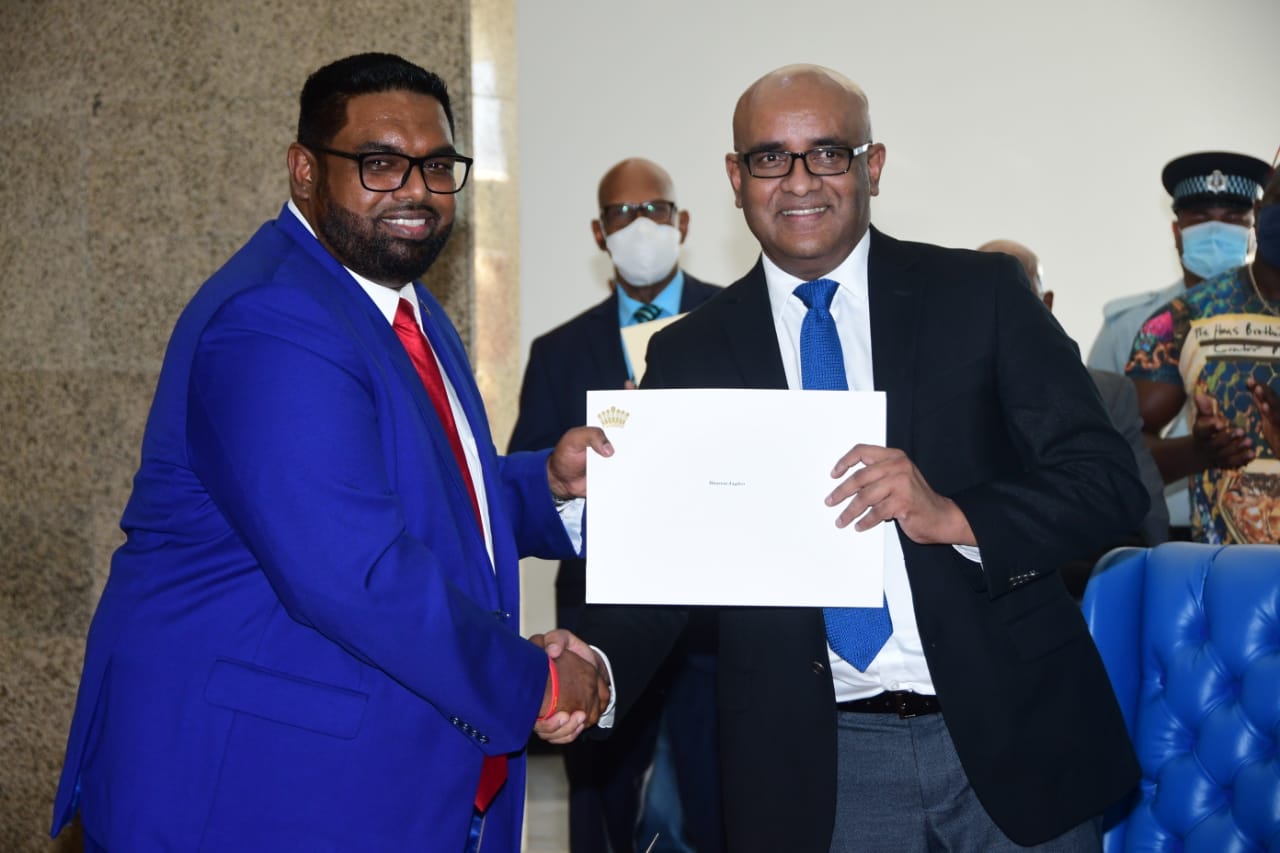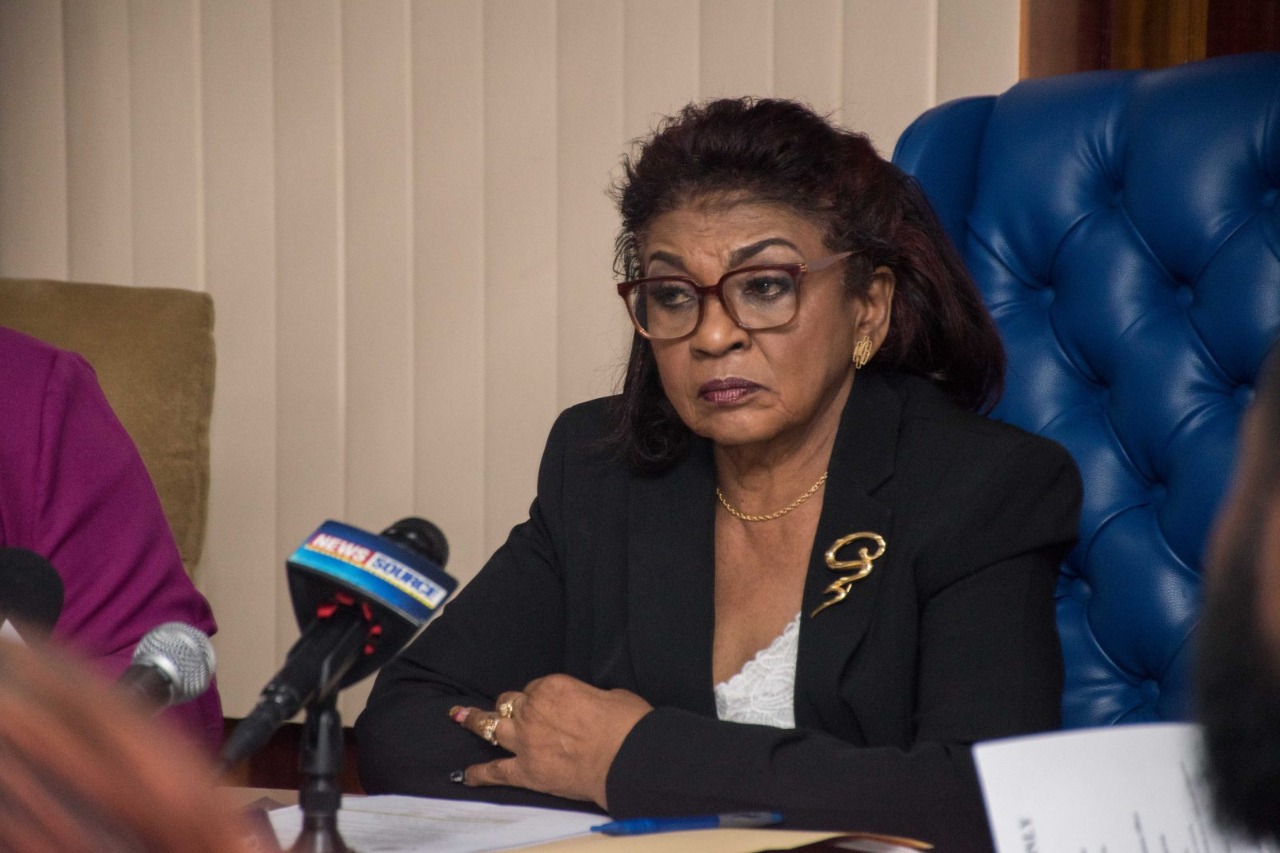Newly appointed Vice President of the People’s Progressive Party Government Bharrat Jagdeo says it is not a position he wanted but decided to accept it because of the five-month elections crisis, the decline of the economy and the COVID-19 pandemic.
“Frankly speaking, I did not want to, I did not throughout the campaign…Maybe I wouldn’t have been had we had an immediate transmission but given the reality of what took place, the pandemic and then the collapse of the economy and this bullyism, I think the experience I have must be deployed in a formal way at [Dr. Ali’s] disposal,” Mr Jagdeo told the News Room Sunday at the Arthur Chung Conference Center immediately after he was appointed.
The new Vice President, who served as Guyana’s longest President from 1999 to 2011, said he was more inclined to give his support to the new Government “in an informal advisory capacity but now what is required is immediate line control in some areas to make sure that things get done.”
Mr Jagdeo who served as the Opposition Leader for the past five years said he spoke with the former President and leader of the APNU+AFC David Granger on Sunday and they agreed to future talks between the two parties on the way forward.
“We have to create the condition so that we can move the country forward and today I spoke with Mr Granger and I expressed that desire and he too, I think he pointed out that he is willing to engage with no agenda in the future, once the declaration is made and it has been made…to look at areas where we can work together,” Mr Jagdeo said.
Speaking of the PPP Government’s agenda, Jagdeo said the PPP administration will pursue accountability, outline a strategy to deal with the COVID-19 pandemic and build the economy by ensuring that persons can return to work and businesses can resume operation.
“[We have] the next few months –half a year or so –of intense work to take us back onto our growth trajectory,” he noted.
The Vice President said the PPP Government will also be charting the way forward for the oil and gas industry to be managed in a bipartisan way.













